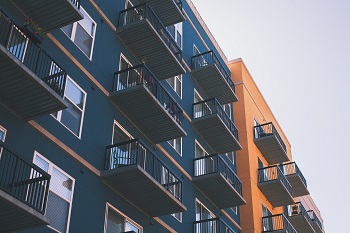Gov. Inslee Amends Moratorium on Evictions and Prohibits Commercial Rent Increases on Tenants Impacted by COVID-19
By Charissa A. Johnston | Related Practice: Real Estate
Category: Covid-19
On April 16, 2020, Governor Jay Inslee issued Amendatory Proclamation No. 20-19.1, which served to extend and amend the existing moratorium on evictions in Washington state under Proclamation No. 20-19. Citing the critical need to protect tenants and residents from homelessness and reduce housing instability, Proc. 20-19.1 extends the moratorium on residential evictions from April 17, 2020 to June 4, 2020. In addition, Proc. 20-19.1 revises the existing moratorium in a number of ways:

Prohibition on Commercial and Residential Rent Increases
Proc. 20-19.1 now prohibits landlords, property owners, and property managers (collectively “Landlords”) from increasing or threatening to increase the rate of rent or the amount of any deposit for any dwelling or parcel of land occupied as a dwelling (a “Residential Dwelling”). Importantly, Proc. 20-19.1 extends this prohibition on rent increases to commercial rental properties if a commercial tenant has been materially impacted by COVID-19. A commercial tenant may be “materially impacted” either personally (i.e., through illness or inability to work), or as a business by being deemed non-essential or otherwise losing staff or customers due to the COVID-19 outbreak.
Residential Evictions
Proc. 20-19.1 now prohibits Landlords from seeking, enforcing, or threatening to serve or enforce, any notice, eviction order, or agreements to vacate that would require a resident to vacate any Residential Dwelling during the Proclamation. Specifically landlords, property owners, and property managers are prohibited from issuing:
- Eviction notices;
- Notices to pay or vacate;
- Unlawful detainer notices;
- Notices of termination of rental; or
- Notices to comply or vacate
Governor Inslee further clarified that this prohibition applies to tenancies and other housing arrangements that have expired or will expire on or before June 4, 2020. A narrow exception exists if a Landlord attaches an affidavit to any of the above notices attesting that the action is necessary to respond to a significant and immediate risk to the health or safety of others that is created by the resident.
Residential Late Payment Penalties
Proc. 20-19.1 prohibits Landlords from assessing or threatening to assess late fees for non-payment or late payments of rent on Residential Dwellings if the non-payment or late payment occurred on or after February 29, 2020, when the State of Emergency was declared in Washington state. Further, Landlords are prohibited from assessing rent or other charges when a resident is unable to access their Residential Dwelling as a result of the COVID-19 outbreak.
Finally, Landlords are prohibited from collecting on unpaid rent or other charges for Residential Dwellings where the non-payment was a result of the COVID-19 outbreak and occurred on or after February 29, 2020. Specifically, Landlords are prohibited from:
- Attempting to collect rent (through a collection agency or otherwise);
- Filing of an unlawful detainer or other judicial action;
- Withholding security deposits (or portions thereof);
- Billing or invoicing residents;
- Reporting residents to credit bureaus; or
- Attempting to collect rent by any other means.
Importantly, this prohibition does not apply where a Landlord demonstrates to a court that a resident was offered, and refused or failed to comply with, a re-payment plan that was reasonably based on the individual financial, health, an other circumstances of that resident.
If you have questions about how this impacts your lease agreements, contact a member of our Real Estate or Business practices.
